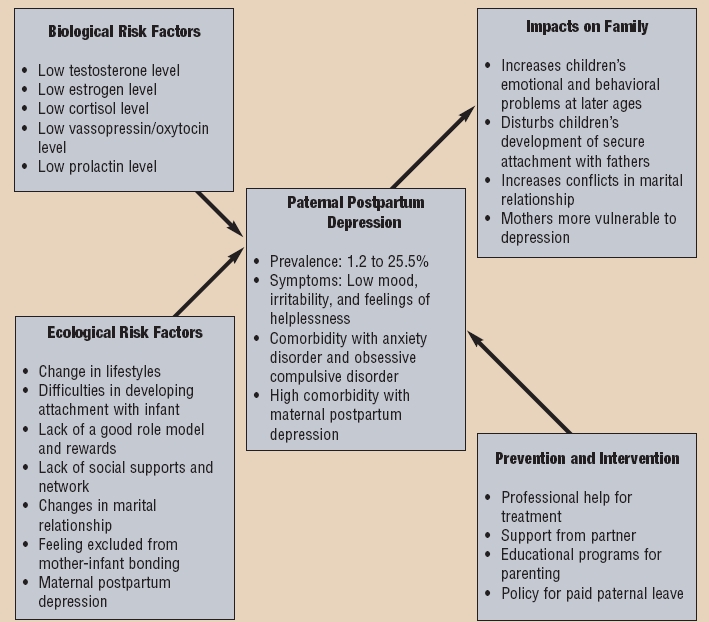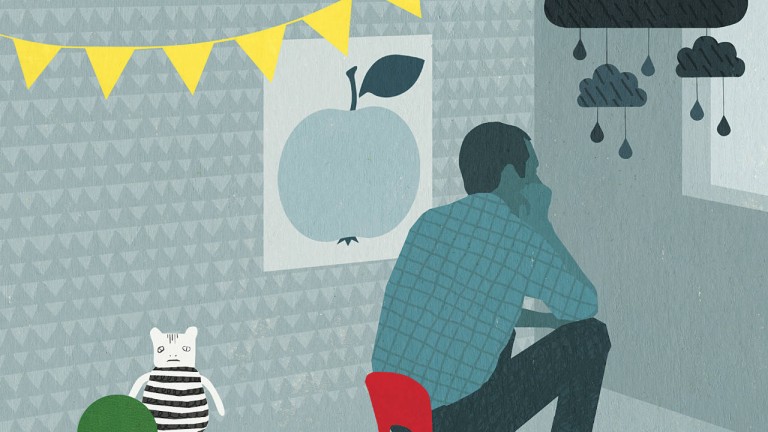Between sleepless nights, drastic lifestyle changes, raging hormones, and the fear and excitement of having a fragile little life in your hands, the birth of a new baby can be an emotional rollercoaster for many new parents.
But while we typically associate postpartum depression with new moms, dads can also experience depression after the arrival of a new baby – and it is much more common than we may think. According to the Journal of the American Medical Association, 10% of fathers become depressed after their baby is born, and is especially common between three to six months after the birth – around the same time that mothers typically go back to work.
Educating ourselves about male postpartum depression can help remove the stigma and help new fathers understand that they are not alone in this difficult journey (Texarkanagazette.com).
Causes of Paternal Postpartum Depression
While it is widely known that women’s hormones change drastically after giving birth, there is evidence that fathers also experience hormone changes when their baby is born. Testosterone levels drop, and levels of estrogen, prolactin, and cortisol rise, causing some men to experience symptoms such as nausea and weight gain that are more commonly associated with hormonal changes in women.
While the causes for these hormonal changes are largely unknown, some evolutionary biologists suspect that these changes are nature’s way of assuring that fathers stick around to bond with their babies. It is also believed that first-time dads are at a greater risk for developing postpartum depression compared to fathers with previous children and that men are more likely to develop postpartum depression if their partner is also suffering from it (Parents.com).
Below are some risk factors for paternal postpartum depression published in Psychiatry (Edgmont) in 2007:

PPD Risk Factors
Signs and Symptoms
While symptoms can present themselves even before the birth of the baby, they usually begin about one to two weeks after birth. Symptoms can include feelings of stress, discouragement, agitation, or anger, difficulty making decisions, aversion to hearing the baby cry, resentment of the baby, disappointment, and feelings of worthlessness, to name just a few. Some physical signs and symptoms include shortness of breath and heart palpitations.
While women often express symptoms of depression by crying or appearing sad, men often express their emotions differently, either through anger or by withdrawing, both physically and emotionally. Some men can also exhibit risky behaviors due to postpartum depression, such as gambling, drug or alcohol use, or turning to extramarital affairs.
Due to cultural pressure, men often believe that it is their role to act as the support system for the mother, so they are less likely to be open about their own feelings of depression after the birth of their child, and are less likely to seek help (Parents.com).
There is very little research about how male postpartum depression affects fathers, but it is clear that depressed fathers can have difficulty bonding with their babies.
“Although the effect of a father’s depression on children is not as well documented as that of a mother’s, we know that dads who are depressed are less involved with their kids, and that can lead to mild language delays, disruptive behavior, or a higher rate of social and emotional problems later on,” – Dr. James F Paulson.

